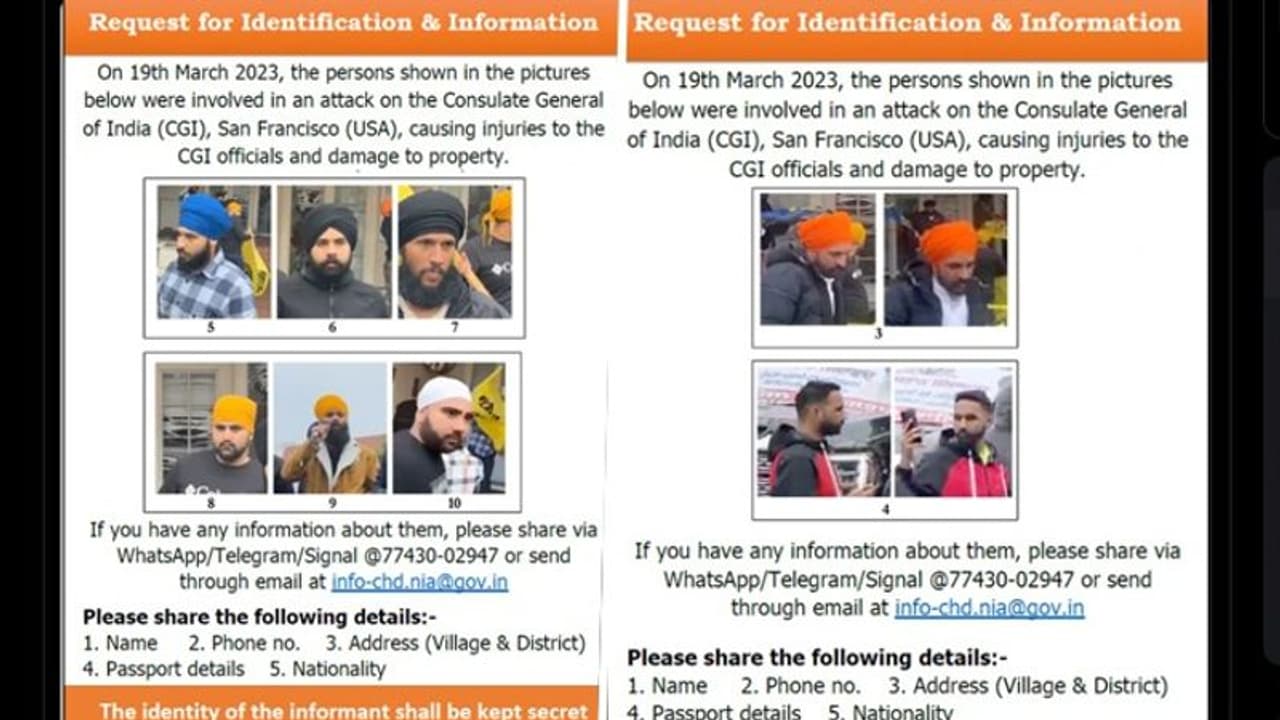The NIA has issued three notices, urging anyone with information that could lead to the arrest of these suspects to come forward. The agency has assured that the identities of informers will be kept confidential.
In a bid to bring those responsible for the attacks on the Indian consulate in San Francisco to justice, the National Investigation Agency (NIA) on Thursday (September 21) released pictures of 10 suspects who believed to be involved in the attacks that occurred in March and July, further intensifying its actions against Khalistani supporters operating from foreign soil.

A case was officially registered under the Unlawful Activities Prevention Act (UAPA) on June 16, responding to the attacks on the Indian consulate in San Francisco.
The NIA has issued three notices, urging anyone with information that could lead to the arrest of these suspects to come forward. The agency has assured that the identities of informers will be kept confidential.
The first attack occurred on March 19 when Khalistani supporters unlawfully trespassed and attempted to set fire to the consulate. During this incident, they breached makeshift security barriers and displayed two Khalistani flags on the consulate premises. The attack resulted in damage to the consulate building and injuries to some officials. The second attempt was made on July 1 while consulate officials were inside the premises.
Recently, an NIA team visited San Francisco last month to collect crucial evidence, including CCTV footage, in collaboration with local law enforcement agencies.
Furthermore, the NIA's recent release of pictures featuring 43 individuals involved in various criminal activities, including terrorism, drug smuggling, and murder, in both Canada and India underscores the agency's commitment to combating these threats.
These actions by the NIA come against the backdrop of heightened tensions between India and Canada following Prime Minister Justin Trudeau's allegation of Indian involvement in the assassination of Khalistani leader Hardeep Singh Nijjar. This allegation ignited a diplomatic dispute, resulting in reciprocal expulsions of senior diplomats from both nations this week.
